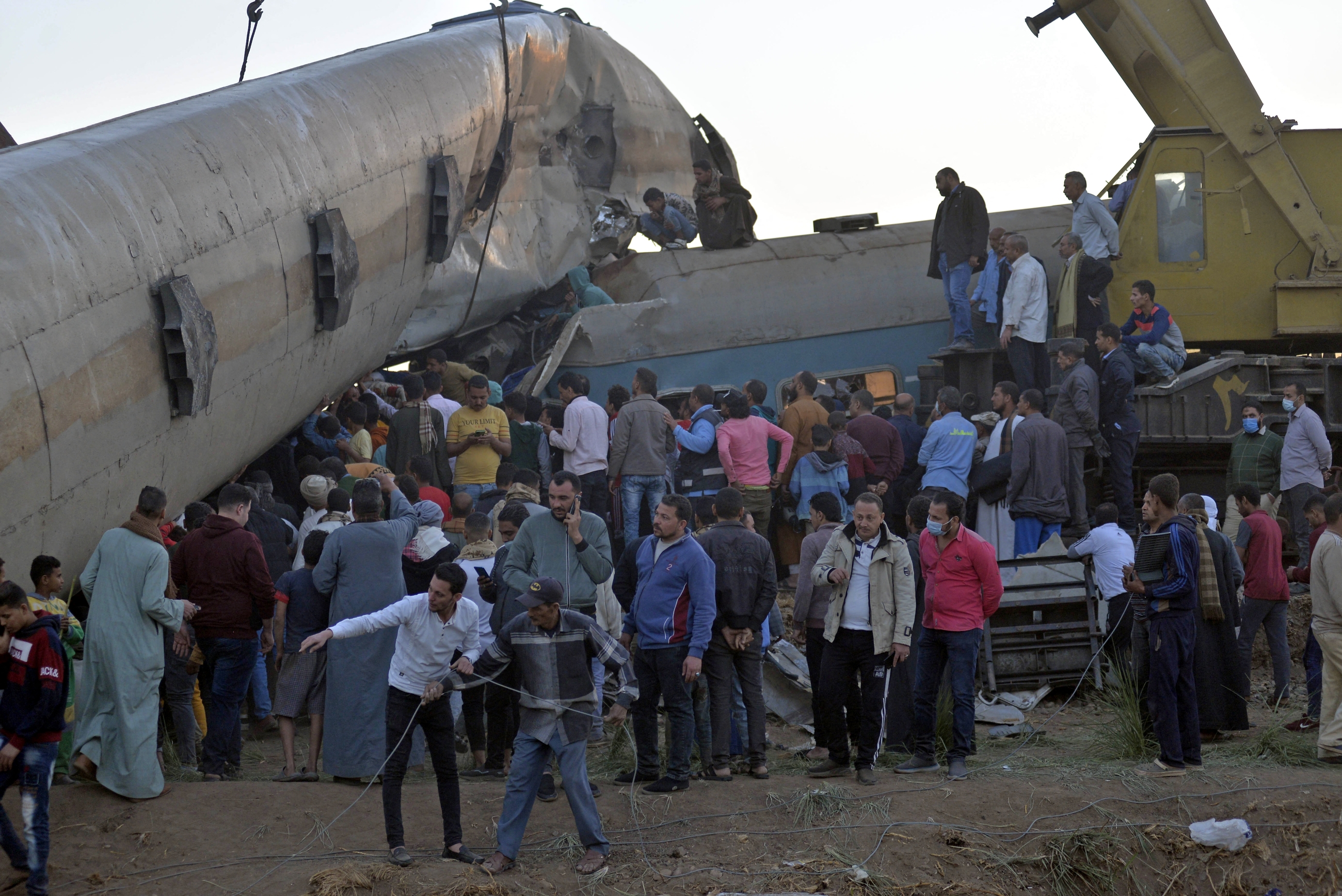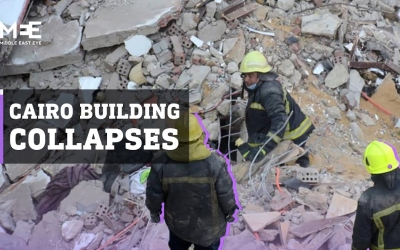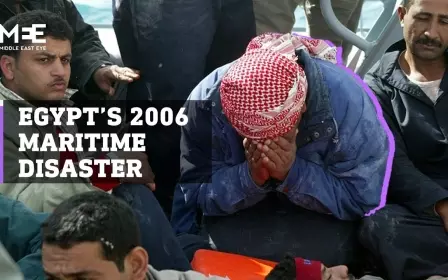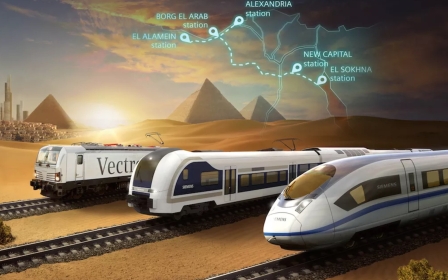Egypt train crash: Anger over transport minister's refusal to step down

Anger has erupted on social media after Egypt’s transport minister, Kamel al-Wazir, said he would not resign following a train crash that resulted in dozens of casualties.
On Friday, two passenger trains collided in southern Egypt's Sohag governorate, killing 19 people and wounding more than 180 others.
The collision, which the railway authority said was caused by the emergency brakes being triggered by "unknown individuals", has caused growing frustration on the ground as well as online.
In a television interview, Wazir said he will not be leaving his post despite growing calls for him to step down.
“I am not used to escaping... I cannot escape from this. If after every incident ministers stepped down, what’s the point, wouldn’t it be better for me to stay in my position until things get sorted out,” he said.
“I am doing everything I can, and God is my witness, for my country and my president who trusts me... if I am lazy and not doing my work, then I will resign because that would make me a traitor.”
However, despite Wazir's claims that he and rail workers were drawing up plans to improve the country’s transport system, the minister’s comments were not well received online.
One social media user questioned his comments, tweeting: “And who decides your failures or your laziness, is it you too?”
Egypt has arrested eight people so far in connection with the train incident, according to AFP.
According to a statement from Egypt’s prosecution, the two drivers, their assistants, the traffic guard and the head of traffic alongside two of their guards were remanded in custody.
Online, people have continued their calls for accountability following the devastating crash.
Translation: The engineer, Kamel al-Wazir, is saying that he is not going to submit his resignation because he’s not used to running away from responsibility. But resignation means taking responsibility, not running away from it. The failure to manage a vital service despite all the calls for improvements means that something is wrong and there has been a major failure which led to these grave consequences.
Translation: Kamel al-Wazir’s conversation with Amr Adib and his reiteration that he will not resign because he is determined to fight and not flee from the issue and betray his country embodies par excellence the issue when a military person assumes the position of a civilian-political role. He does not understand matters of political responsibility and has no sense when major political failures and mistakes occur.
The minister’s comments have also called into question his handling of the situation and how he assumed his position as transport minister.
Wazir is a military general and former chairman of the Armed Forces Engineering Authority. His appointment triggered renewed criticism of President Abdel Fatteh el-Sisi's government over its failure to prevent tragic train incidents. Last week was the fifth rail accident since Sisi took power in a 2013 military coup.
On Friday, following the incident, the hashtag "step down Sisi" was trending at number one for a few hours, with over 7,000 people using the phrase to express their dismay at what had happened and the corruption that they say caused the incident.
The train collision occurred during a period where hospitals in Egypt are overwhelmed due to the Covid-19 pandemic.
Human Rights Watch researcher Amr Magdi highlighted Egypt’s pattern of traffic accidents and compared the lack of funding for better transport to Egypt’s military spending, which has increased by 136 percent from 2016-19 according to SIPRI, an independent international institute which conducts research into conflict and arms control.
Some also have raised the megaprojects assumed by Sisi's government while basic infrastructure appears to be lethally failing.
Earlier this year, Egypt announced a new $23bn investment plan for a new rail line, which was met with scepticism from Egyptians who said that the money would have been better spent on schools and hospitals, and that the project was intended for Egypt’s elite.
Meanwhile, cash is being poured into the construction of a new Administrative Capital, which will house the government, a presidential palace, the supreme court and the central bank, as well as an airport and business district.
Critics have long argued that Egypt cannot afford such mammoth projects, particularly at a time when the healthcare system is faltering and unemployment is on the rise.
Translation: This is because we do not appreciate humans - we neglect their education, their health and their means of transport and we went to look for an ideal in a city that is surrounded by walls. But in the old city people are left to die, through their poverty or through negligence…
Egypt has had a long history of railway disasters.
In March last year, at least 13 people were injured when two passenger trains collided in Cairo, triggering a brief suspension of rail services nationwide. At the time, rail managers blamed the crash on signals not functioning in bad weather.
In February 2019, a train derailed and caught fire at Cairo's main railway station killing more than 20 people and prompting the transport minister to resign.
Meanwhile, on Saturday, a building collapsed in Cairo, killing 18 people and also triggering a wave of criticism online.
Egypt has suffered several deadly building collapses and industrial fire accidents in recent years because of the poor upkeep of many premises and poor adherence to planning regulations.
Developers seeking to make profits also commonly violate building permissions by building extra floors to apartment blocks without permits, often resulting in poor construction.
A six-month old baby was pulled out alive from beneath the collapsed building as search teams continue to look for those still missing.
Friday's crash comes as Egypt faces another major transport crisis, with a giant container ship blocking the Suez Canal and causing huge traffic jams at either end of the strategic shipping lane.
Middle East Eye delivers independent and unrivalled coverage and analysis of the Middle East, North Africa and beyond. To learn more about republishing this content and the associated fees, please fill out this form. More about MEE can be found here.






